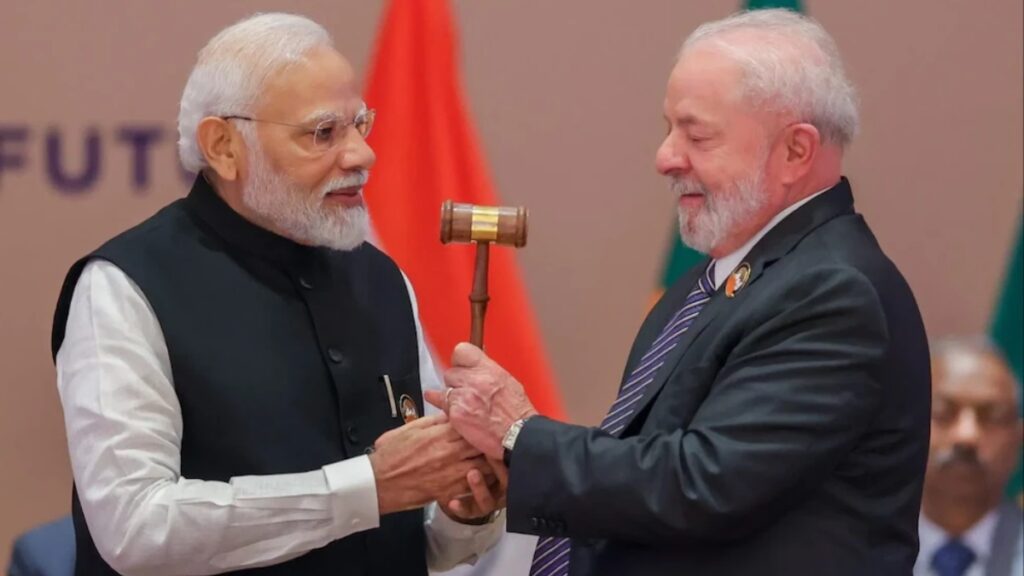NEW DELHI: The G20 Leaders’ Summit, slated to be held in the Brazilian city of Rio de Janeiro on November 18-19, is expected to move further on the key priorities of the grouping, as stated in the New Delhi Declaration of September 2023.
The action points will likely include reform of the multilateral development banks (MDBs) in terms of bolstering their funding capacities and priorities, and bridging the global digital divide, according to sources.
The grouping, that accounts for 88% of the world GDP and 78% of the global trade, is also expected to report on the progress in achieving sustainable development goals (SDGs), against the road map laid earlier, including in last year’s New Delhi summit under India’s presidency.
Climate financing and debt sustainability are the other important subjects on Rio meet agenda. Leaders of the 19 member countries, including Prime Minister Narendra Modi, will attend the top-level meet.
Brazil G20 Presidency’s priorities align very well with the priorities that India had championed and voiced during its G20 Presidency in 2023, the sources said.
Brazil has set ‘hunger and poverty’ as the chief planks during its Presidency. Last year, India had come out with the G20 Deccan high level principles on food security and nutrition, which align with the main priority of the Brazilian Presidency.
To make MDBs better, bolder and bigger, the Independent Expert Group (IEG), set up by India on strengthening MDBs, in its second report, suggested a road map for these banks to shift away from individual projects towards programmes where national governments take a strong lead. They have also been advised to scale up and engage with the private sector and triple their financing portfolio by 2030.
In their first report, the expert group set up by the G20 Indian Presidency has estimated an additional spending requirement of $3 trillion per year by 2030 to address urgent global challenges and SDGs. Of the $3 trillion annual requirement, $2 trillion can come from domestic resource mobilisation, while the remaining $1 trillion via additional external financing. Of the $1 trillion in external financing, more than half could come from private financing, and the rest from official financing, including MDBs.
With regards to energy transition, the ambitions set in New Delhi on tripling renewable energy capacity and doubling the rate of energy efficiency by 2030 are also likely to be reaffirmed at the Brazil G20 Summit. Developing countries are looking forward to G20 leaders to arrive at a decision on their demand for $1 trillion/annum funding from developed nations for energy transition.
Brazil’s Presidency is also expected to take forward India’s pitch for global adoption of Digital Public Infrastructure to promote productivity and achieve inclusive and sustainable growth.
The G20 has, since the 2008-09 financial crisis, emerged as the primary forum for international economic cooperation and on issues of global significance. It provides an opportunity for leaders of the 21 largest economies in the world.
Source: The Financial Express




 From Mahatma Gandhi’s Lap To Left Extremism – Barun Dasgupta’s Memoir Is Exciting
From Mahatma Gandhi’s Lap To Left Extremism – Barun Dasgupta’s Memoir Is Exciting 